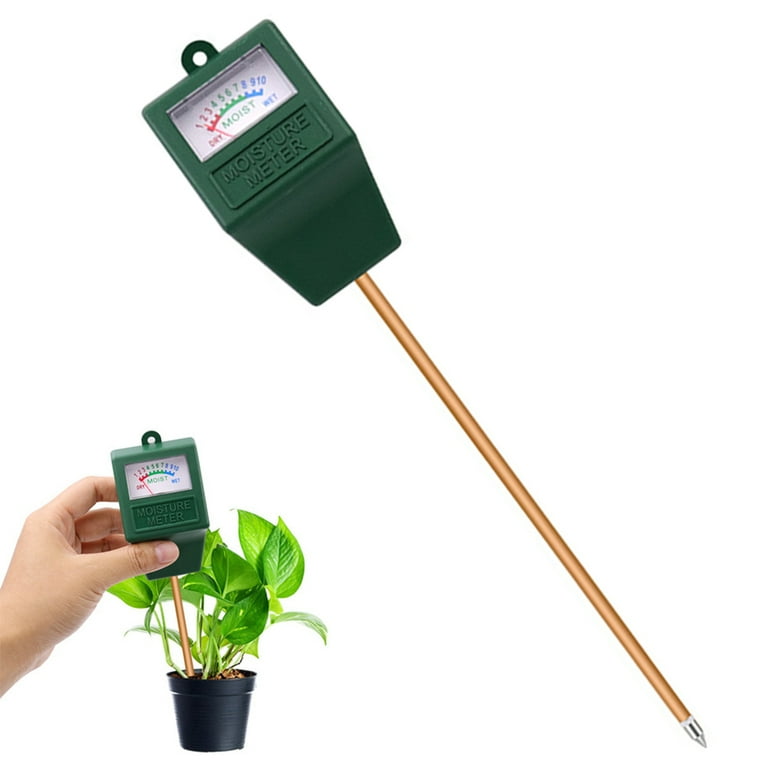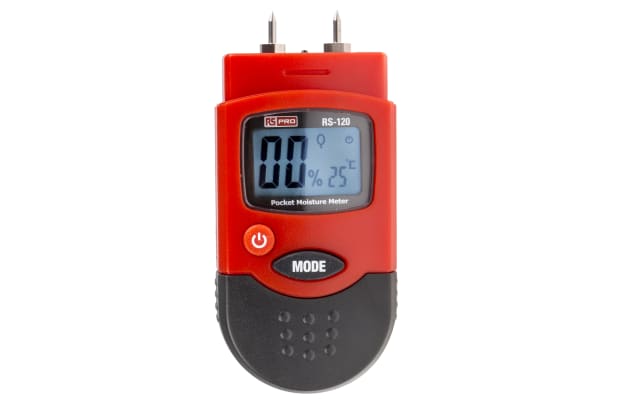Recognizing the Different Kinds Of Moisture Meters and Their Applications
Recognizing the Different Kinds Of Moisture Meters and Their Applications
Blog Article
The Ultimate Overview to Moisture Meters: A Comprehensive Introduction and Exactly How They Can Save You Money
Moisture meters offer as crucial devices in detecting and keeping track of moisture material in materials, aiding in stopping expensive damages and making sure the top quality of items. Comprehending the nuances of different types of moisture meters, their applications, and the potential cost-saving advantages they use can be a game-changer for services and professionals alike.
Sorts Of Wetness Meters
One common type is the pin-type wetness meter, which determines the electrical resistance in between 2 pins inserted into a product. Pinless moisture meters, on the various other hand, usage electro-magnetic sensor plates to check a larger location without triggering damage to the material's surface area.

In addition, there are likewise specialized moisture meters designed for certain products like hay, grain, or soil. These meters supply accurate dampness analyses customized to the one-of-a-kind residential properties of the material being checked. Infrared moisture meters determine the thermal homes of a material to identify its moisture web content non-invasively, making them beneficial for applications where pin or pinless meters might not appropriate. Understanding the different kinds of wetness meters readily available can aid sectors select one of the most proper device for their certain wetness dimension needs.

Advantages of Using Dampness Meters
Wetness meters offer very useful benefits in accurately examining and checking dampness degrees in varied materials and environments (Moisture Meter). One of the key advantages of making use of dampness meters is the avoidance of potential damages triggered by excess dampness. By detecting and dealing with high moisture degrees early on, moisture meters help to avoid mold and mildew development, rot, and architectural damages in structures, saving both time and money on repairs. Additionally, dampness meters aid in making sure the quality of products during construction or manufacturing procedures. By properly gauging dampness material, these tools assist preserve the honesty of timber, drywall, concrete, and other products, lowering the danger of problems or failures.
Additionally, utilizing dampness meters can lead to increased energy performance. In farming settings, moisture meters play a vital role in enhancing plant yields by enabling farmers to monitor soil dampness degrees and make notified irrigation decisions.
Exactly How to Select the Right Dampness Meter
Picking the ideal wetness meter entails taking into consideration vital aspects such as material compatibility, dimension range, and calibration accuracy. When picking a moisture meter, it's necessary to ensure that the meter appropriates for the details material you will be testing. Different products have differing electrical properties that can influence moisture analyses, so choosing a meter created for your material is crucial for precise results. Furthermore, consider the measurement array of the moisture meter. Make certain that the meter can detect wetness degrees within the variety required for your applications. Calibration precision is one more crucial factor to keep in mind. Go with a dampness meter with trustworthy calibration to make certain specific and regular readings. Some meters may need regular calibration adjustments, so understanding the calibration procedure is necessary. By very carefully evaluating these aspects, you can choose a moisture meter that meets your requirements and gives exact moisture dimensions for your jobs.
Proper Strategies for Dampness Meter Usage

Expense Cost Savings Through Wetness Meter Applications
Just how can the critical use of dampness meters lead to significant price savings throughout different sectors? In the farming industry, wetness meters help in figuring out the optimum time for gathering plants, protecting against over-drying or excess dampness that can affect the final item's high quality.
Likewise, in building and construction, dampness meters aid prevent expensive problems by finding moisture see this page degrees in building products, such as wood or concrete, which can bring about structural concerns if not dealt with promptly. By identifying trouble areas early on, professionals can take restorative procedures to avoid substantial repairs or substitutes, inevitably saving money and time.
In addition, in the food handling industry, moisture meters are necessary for keeping track of product top quality and ensuring compliance with safety and security regulations. By accurately measuring wetness content in food items, producers can stop wasting, maintain quality, and reduce waste, causing considerable cost financial savings. Overall, the calculated application of moisture meters is a useful investment that can cause considerable cost reductions and improved performance throughout numerous sectors.
Verdict
In verdict, wetness meters are beneficial tools for spotting and determining wetness levels in various products. By utilizing the right wetness meter and adhering to proper techniques, customers can properly prevent expensive damages triggered by excess moisture.
Wetness meters offer as indispensable devices in finding and keeping track of moisture material in products, assisting in preventing expensive damages and making certain the top quality of products. Infrared wetness meters measure the thermal properties of a product to establish its dampness web content non-invasively, making them useful for applications where pin or pinless meters may not be appropriate.Dampness meters offer indispensable benefits in accurately analyzing and keeping an eye on moisture degrees in diverse products and settings. In agricultural setups, visit site moisture meters play a vital function in maximizing plant returns by enabling farmers to keep track of dirt dampness levels and make informed irrigation decisions.In final thought, moisture meters are important devices for spotting and measuring dampness levels in various materials.
Report this page